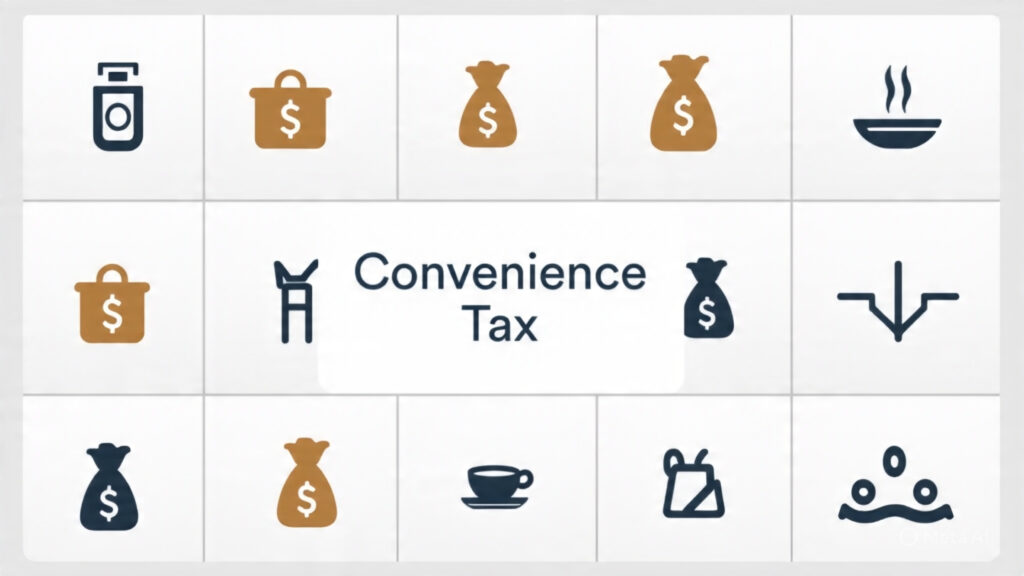Do you drag yourself out of bed every morning, running on caffeine and willpower? You put in long hours, skip breaks, hustle through weekends — yet your bank account barely reflects the effort. Sound familiar?
Welcome to the paradox of being burnt out but still broke — a painful, all-too-common loop where your energy is drained, but your finances remain just as tight. It’s like sprinting on a treadmill and never moving an inch forward.
In this post, we’ll uncover the hidden toll of overworking without a clear purpose — from financial leakage to mental burnout — and actionable steps to escape the grind.

The Financial Fallout of Purpose-Less Hustling
At first glance, working overtime might seem like the answer to financial security. But for many, that “grind” leads straight to exhaustion — and empty pockets. Let’s break down the hidden costs.
1. Overtime Doesn’t Always Mean Overflowing Wallets
Sure, more hours can mean more income — in theory. But in reality, many people find themselves burnt out but still broke due to a “convenience tax” that eats into their earnings.
The Convenience Trap
Too tired to cook? You order food. No time to clean? You hire help. This constant outsourcing due to fatigue adds up fast — silently draining your finances and nullifying the gains of those extra hours.
Impulse Spending as a Coping Mechanism
Stress affects decision-making. Overwhelm leads to impulse purchases and emotional spending — think online shopping sprees or daily coffee splurges. These feel-good fixes offer momentary relief but long-term financial regret.

Opportunity Costs: What You’re Missing While You Hustle
Working non-stop doesn’t just drain your wallet — it robs you of opportunities for real, sustainable growth.
2. No Time to Grow, No Room to Earn More
When you’re constantly working, there’s no time left to level up. Professional development gets sidelined — which stunts promotions, skill-building, and higher-paying opportunities.
Stuck in the Same Role
Burnout keeps you in survival mode. You’re too tired to take on stretch projects, too foggy to learn new skills. You remain underpaid, undervalued — and yes, burnt out but still broke.
Zero Time for Financial Learning
Want to invest, start a side hustle, or learn budgeting? Tough luck when you’re mentally fried. Without financial literacy, even increased earnings won’t build long-term wealth.

Burnout Destroys Focus — and Finances
Let’s be real: exhaustion doesn’t just affect your body — it scrambles your mind.
3. Cognitive Overload = Poor Money Choices
Decision fatigue from burnout leads to procrastination, forgetfulness, and scattered focus — both at work and at home.
- Bills go unpaid.
- Budgets get ignored.
- Job performance slips.
The result? Missed promotions, overdraft fees, and a growing sense of failure. It’s a vicious cycle — one that keeps you burnt out but still broke.

The Emotional Cost of Overworking Without Purpose
The damage isn’t just financial. Working without meaning drains your soul. Over time, this erodes your sense of joy, drive, and even identity.
4. Losing Sight of Your “Why”
What’s the purpose behind your work? If it’s just “to survive,” that lack of direction can eat away at your motivation.
- You dread Mondays.
- You feel disengaged.
- You wonder what it’s all for.
This emotional numbness isn’t laziness — it’s a symptom of deeper misalignment.
Health and Relationships Pay the Price Too
5. Burnout = Broken Body, Broken Bonds
Chronic overwork triggers serious health problems — insomnia, anxiety, high blood pressure, and more. These not only reduce your ability to earn but increase medical costs.
Meanwhile, personal relationships take a hit. You skip family dinners, cancel on friends, and miss life’s small joys. Without support, burnout deepens.
Soon, you’re not just burnt out but still broke — you’re alone, anxious, and disconnected.
Why We Keep Grinding: The Psychology Behind the Trap
Why do smart, hardworking people fall into this trap?
6. The Hustle Culture Mirage
We live in a society that glorifies exhaustion.
- “Grind now, shine later.”
- “Sleep is for the weak.”
- “Always be hustling.”
This mindset rewards busyness, not purpose. It’s easy to confuse constant motion with progress — but without direction, that motion leads nowhere.
7. Fear, Insecurity, and The Need to Prove Ourselves
Fear of being seen as lazy. Fear of losing your job. The need to keep up appearances. These internal pressures are powerful — and they often keep us trapped in jobs that drain us.
Even if those jobs leave us burnt out but still broke.

How to Break Free: Reclaim Your Time, Energy, and Income
It’s not easy — but escaping the burnout-broke loop is possible. It starts with small, intentional changes.
Step 1: Define Your “Why”
Get clear on what you want from work and life. Is it freedom? Impact? Security? Once you know your why, you can align your job (or your next move) with that purpose.
✅ Action Tip: Journal for 10 minutes daily. Write down moments when you felt energized, fulfilled, or proud — then look for patterns.
Step 2: Reevaluate Your Work-Life Boundaries
You don’t have to do everything. Say no. Delegate. Use tech to automate. Block time for rest and learning.
✅ Action Tip: Set “no work” hours each evening. Use that time to connect with family, exercise, or learn something new.
Step 3: Build a Smarter Money Plan
You don’t need to earn more — you need to manage better. Start with a simple budget. Cut impulse spending. Reinvest your energy into upskilling or side hustles.
✅ Action Tip: Try a weekly “money date” with yourself. Review your spending, track goals, and celebrate small wins.
Step 4: Find Mentorship and Support
Don’t do this alone. Whether it’s a mentor, therapist, or accountability buddy — get someone in your corner.
✅ Action Tip: Join a mastermind group, career forum, or online community. Surround yourself with people pursuing purpose, not just paychecks.
Final Thoughts: Your Energy Is Your Currency
Being burnt out but still broke isn’t just a time issue — it’s a clarity issue.
You don’t need to work harder. You need to work wiser.
Choose work that aligns with your values. Set boundaries that protect your energy. Make financial decisions with intention. And above all — remember that your well-being isn’t a luxury, it’s a requirement for success.
Stop trading your peace for pennies. You’re worth more — and you know it







